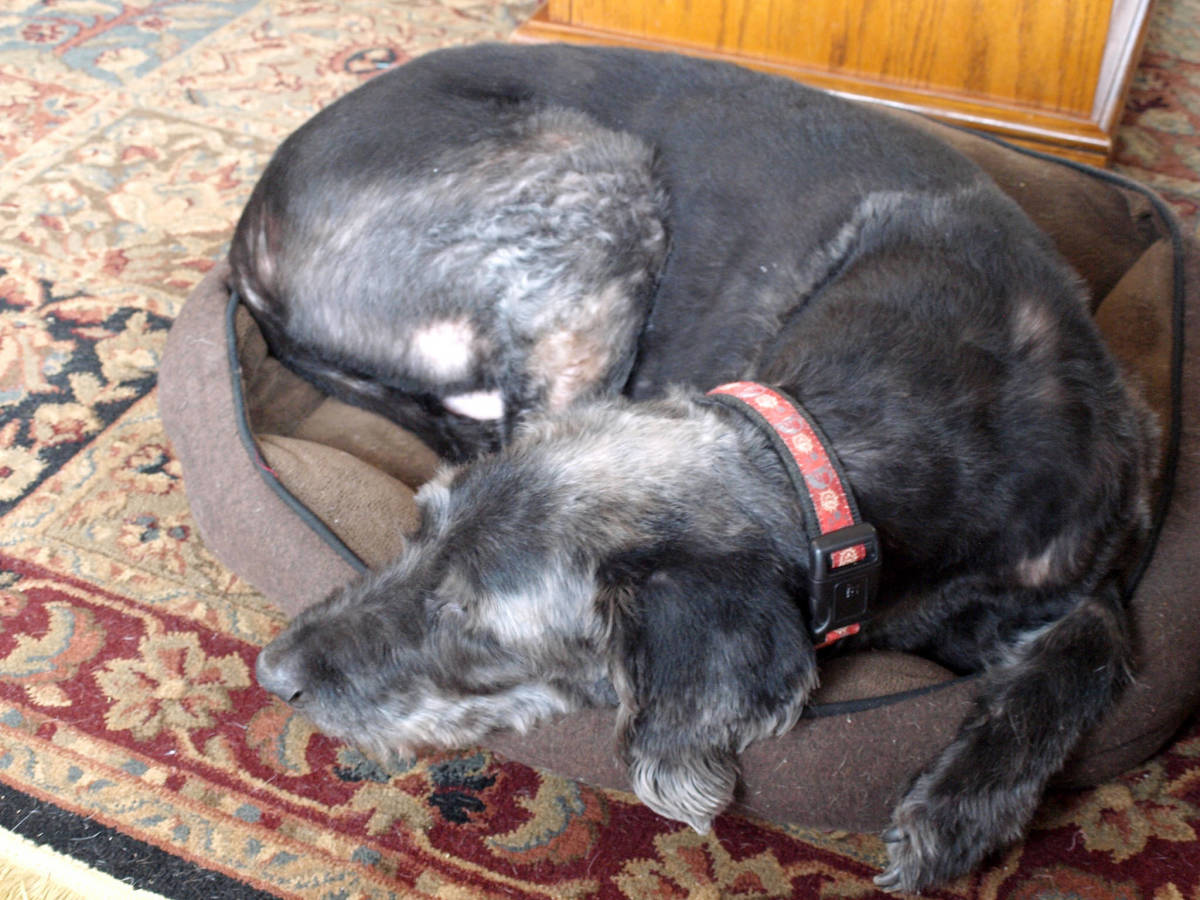Monitor Her Sleep
Look for Other Health Issues
Monitor your dog’s appetite, her toilet habits, her activity levels and the general condition of her body. A dog sleeping more than normal who also shows a decline in appearance and appetite may, for example, be suffering from age-related illness such as kidney failure. A dog who sleeps more than normal and also displays mobility issues may be suffering from arthritis for dogs.
Examine Environmental Factors
Keep track of any environmental factors that could be influencing your dog’s sleep patterns. For example, a recent move may be causing your dog to experience interrupted sleep, which could lead to tiredness during the day. Too much exercise, not enough food, climate and temperature can cause a dog to require more sleep.
Make Lifestyle Adjustments
You can make life easier for an older dog with a few simple adjustments. If she’s lethargic or overly sleepy, move her bed nearer to the door, so it’s less effort for her to go outside. Splitting her meals up into four smaller servings, instead of two large meals, can provide some digestive relief as well. Also adding best dog supplements in her diet may help.
Consult a Veterinarian
If your dog’s sleeping patterns are causing you concern, or if the changes are extreme or unpredictable, consult your veterinarian immediately. In many cases, the cause for her tiredness or lethargy may be treatable with minor lifestyle adjustments or medication, but it’s always smart to get a professional opinion.
It’s normal for an older dog to sleep more and for her sleep patterns to change as she ages. You may notice that your dog is sleeping at different times of day and for longer periods. But if your dog has gone from sleeping for half the morning to sleeping the entire morning, this may be signs of pain in dogs or signal a health issue. To make a solid assessment on the extremity of the changes to her sleep, keep a doggy sleep diary. Note down the times she sleeps and for how long. Small and medium breeds typically reach their twilight years once they pass the age of 7, larger breeds around the age of 6 and giant breeds around the age of 5. It’s around these ages that you can expect to see a slow increase in the amount of sleep your dog needs.
Look for Other Health Issues
Monitor your dog’s appetite, her toilet habits, her activity levels and the general condition of her body. A dog sleeping more than normal who also shows a decline in appearance and appetite may, for example, be suffering from age-related illness such as kidney failure. A dog who sleeps more than normal and also displays mobility issues may be suffering from arthritis for dogs.
Examine Environmental Factors
Keep track of any environmental factors that could be influencing your dog’s sleep patterns. For example, a recent move may be causing your dog to experience interrupted sleep, which could lead to tiredness during the day. Too much exercise, not enough food, climate and temperature can cause a dog to require more sleep.
Make Lifestyle Adjustments
You can make life easier for an older dog with a few simple adjustments. If she’s lethargic or overly sleepy, move her bed nearer to the door, so it’s less effort for her to go outside. Splitting her meals up into four smaller servings, instead of two large meals, can provide some digestive relief as well. Also adding best dog supplements in her diet may help.
Consult a Veterinarian
If your dog’s sleeping patterns are causing you concern, or if the changes are extreme or unpredictable, consult your veterinarian immediately. In many cases, the cause for her tiredness or lethargy may be treatable with minor lifestyle adjustments or medication, but it’s always smart to get a professional opinion.

No comments:
Post a Comment